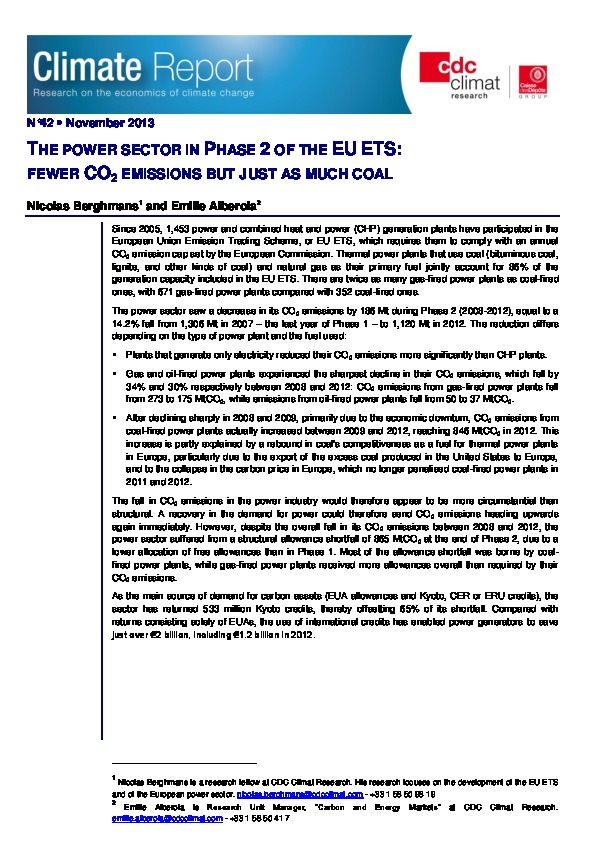THE POWER SECTOR IN PHASE 2 OF THE EU ETS: FEWER CO2 EMISSIONS BUT JUST AS MUCH COAL
By Nicolas Berghmans and Emilie Alberola
Since 2005, 1,453 power and combined heat and power (CHP) generation plants have participated in the European Union Emission Trading Scheme, or EU ETS, which requires them to comply with an annual CO2 emission cap set by the European Commission. Thermal power plants that use coal (bituminous coal, lignite, and other kinds of coal) and natural gas as their primary fuel jointly account for 86% of the generation capacity included in the EU ETS. There are twice as many gas-fired power plants as coal-fired ones, with 671 gas-fired power plants compared with 352 coal-fired ones.
